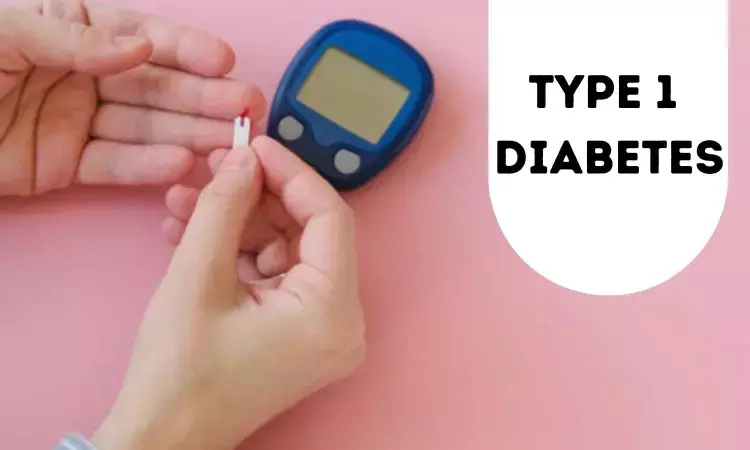- Home
- Medical news & Guidelines
- Anesthesiology
- Cardiology and CTVS
- Critical Care
- Dentistry
- Dermatology
- Diabetes and Endocrinology
- ENT
- Gastroenterology
- Medicine
- Nephrology
- Neurology
- Obstretics-Gynaecology
- Oncology
- Ophthalmology
- Orthopaedics
- Pediatrics-Neonatology
- Psychiatry
- Pulmonology
- Radiology
- Surgery
- Urology
- Laboratory Medicine
- Diet
- Nursing
- Paramedical
- Physiotherapy
- Health news
- Fact Check
- Bone Health Fact Check
- Brain Health Fact Check
- Cancer Related Fact Check
- Child Care Fact Check
- Dental and oral health fact check
- Diabetes and metabolic health fact check
- Diet and Nutrition Fact Check
- Eye and ENT Care Fact Check
- Fitness fact check
- Gut health fact check
- Heart health fact check
- Kidney health fact check
- Medical education fact check
- Men's health fact check
- Respiratory fact check
- Skin and hair care fact check
- Vaccine and Immunization fact check
- Women's health fact check
- AYUSH
- State News
- Andaman and Nicobar Islands
- Andhra Pradesh
- Arunachal Pradesh
- Assam
- Bihar
- Chandigarh
- Chattisgarh
- Dadra and Nagar Haveli
- Daman and Diu
- Delhi
- Goa
- Gujarat
- Haryana
- Himachal Pradesh
- Jammu & Kashmir
- Jharkhand
- Karnataka
- Kerala
- Ladakh
- Lakshadweep
- Madhya Pradesh
- Maharashtra
- Manipur
- Meghalaya
- Mizoram
- Nagaland
- Odisha
- Puducherry
- Punjab
- Rajasthan
- Sikkim
- Tamil Nadu
- Telangana
- Tripura
- Uttar Pradesh
- Uttrakhand
- West Bengal
- Medical Education
- Industry
Almost 4 in 10 adults with type 1 diabetes are not diagnosed until after age 30

A brief research report including more than 900 adults with type 1 diabetes found that 37 percent, or nearly 4 in 10 participants, were diagnosed with type 1 diabetes after age 30. Age of diagnosis was higher for men and racial minority adults. The findings are published in Annals of Internal Medicine.
Adult-onset type 1 diabetes is frequently misdiagnosed as type 2 diabetes, leading to inappropriate care.
Emerging data suggest that up to 62% of type 1 diabetes cases develop after age 20 years. However, prior studies have been done in selected clinical populations. Clarifying the burden of adult-onset type 1 diabetes in the general population may help reduce misdiagnosis.
Researcher from Johns Hopkins Bloomberg School of Public Health analyzed data from the 2016 to 2022 cycles of the National Health Interview Survey (NHIS) to characterize the age distribution of type 1 diabetes diagnosis in the United States, overall and according to demographic and clinical characteristics. Based on data for 947 patients with type 1 diabetes, the authors found that the peak diagnosis age was approximately 15 years, and the median age of diagnosis was 24 years.
The authors also found that the age of diagnosis was older in men than women, and for racial/ethnic minority adults compared to non-Hispanic White adults. The authors report that overall, 37 percent of participants reported a diagnosis after age 30 years. According to the authors, tools integrating clinical measures and biomarkers may improve the accuracy of diagnosis for these patients.
Reference:
Michael Fang, Dan Wang, Justin B. Echouffo-Tcheugui, Elizabeth Selvin, Age at Diagnosis in U.S. Adults With Type 1 Diabetes, https://doi.org/10.7326/M23-1707.
Dr Kamal Kant Kohli-MBBS, DTCD- a chest specialist with more than 30 years of practice and a flair for writing clinical articles, Dr Kamal Kant Kohli joined Medical Dialogues as a Chief Editor of Medical News. Besides writing articles, as an editor, he proofreads and verifies all the medical content published on Medical Dialogues including those coming from journals, studies,medical conferences,guidelines etc. Email: drkohli@medicaldialogues.in. Contact no. 011-43720751


